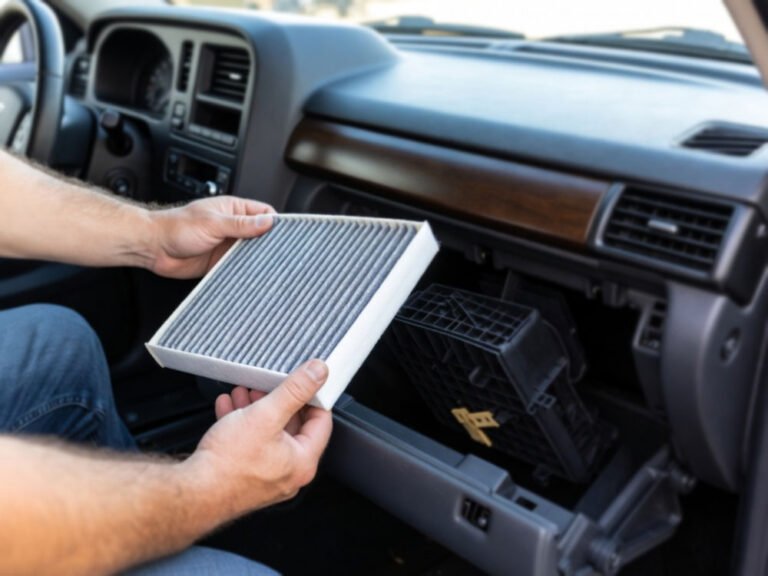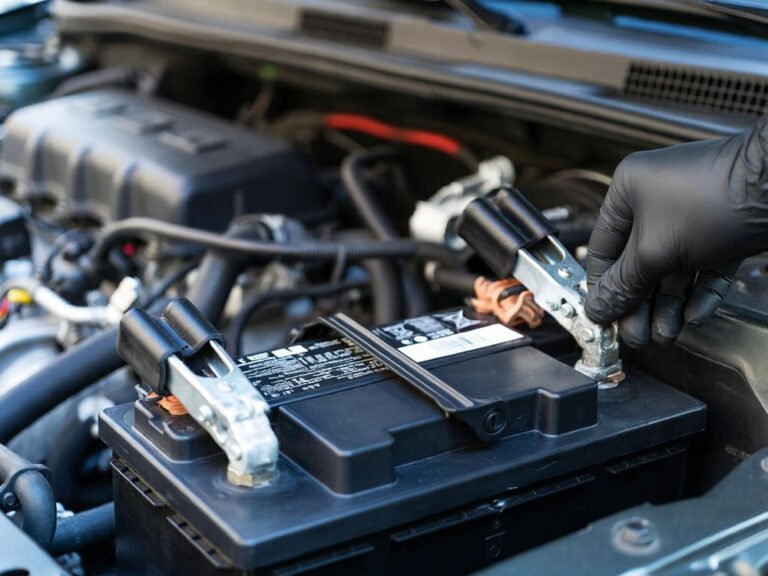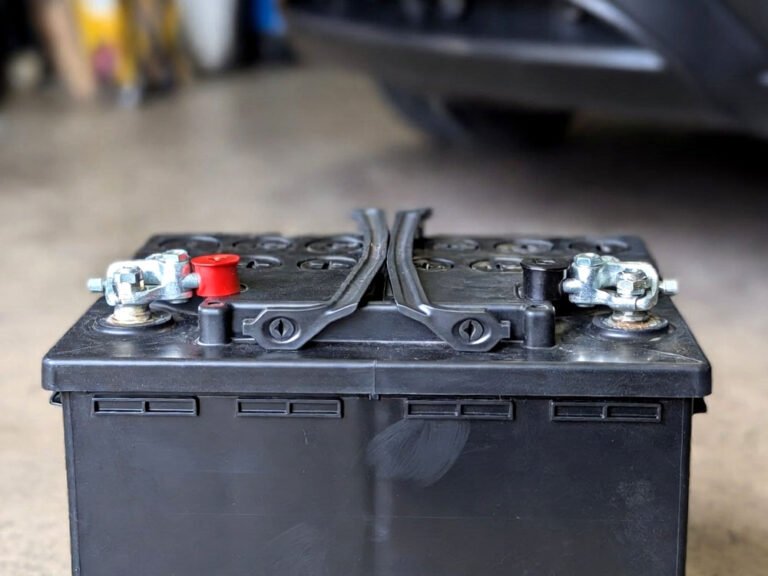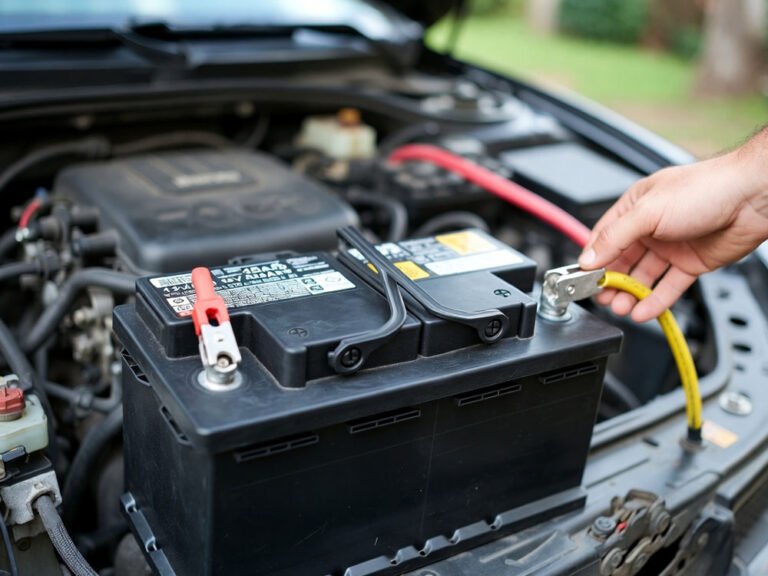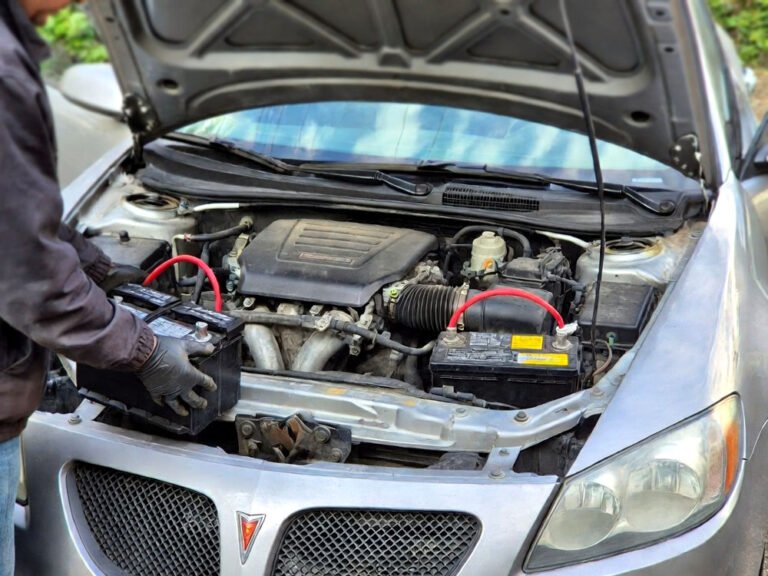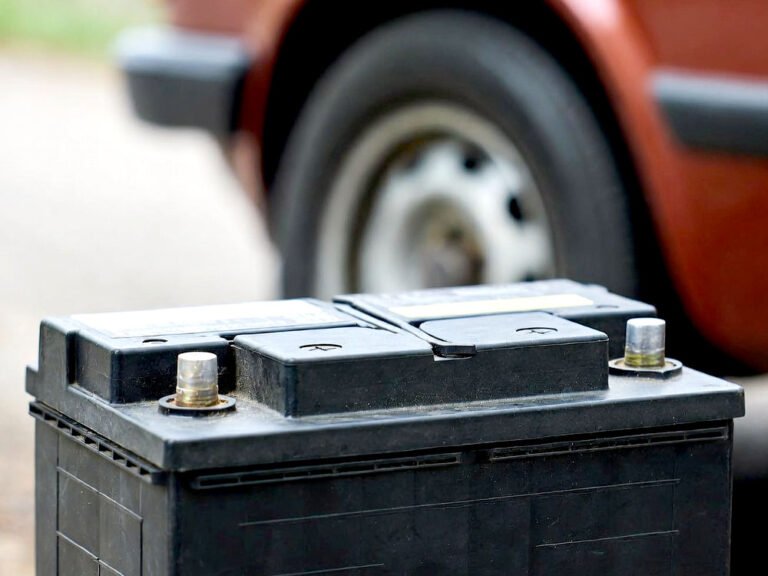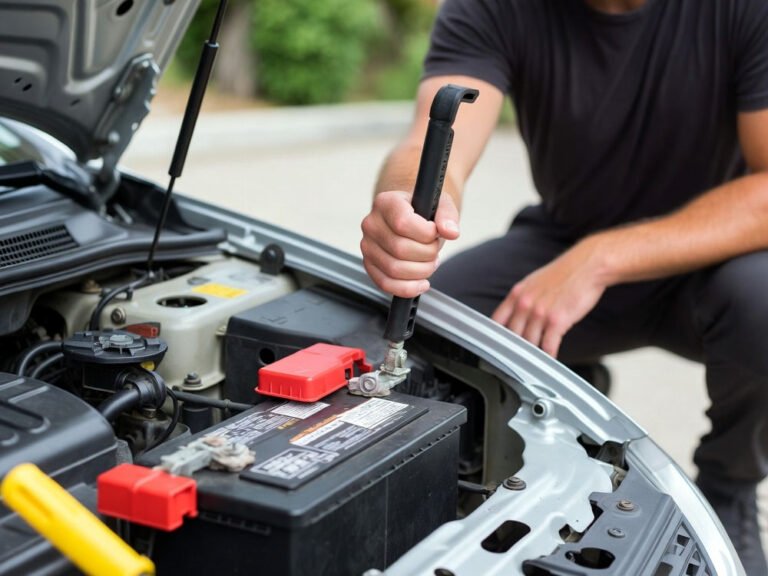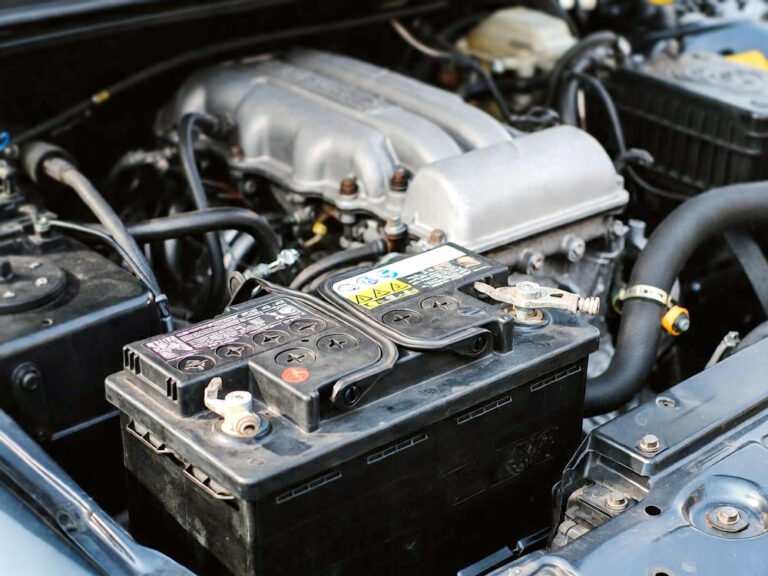You are driving on a sunny day, and suddenly you see steam coming out from your car hood. You panic. The temperature gauge shoots up. Yes, your car is overheating. It is scary, but you are not alone. Many drivers face this, and there is always a real reason behind it. The good news is, most overheating problems can be fixed before they turn serious. In this article, you will learn what causes car to overheat, how to spot the problem early, and what you can do to stop it from happening again.
Low Coolant or No Coolant
Your car needs coolant to keep the engine at the right temperature. Coolant, also called antifreeze, flows through the engine and pulls the heat away. If your car does not have enough coolant, or if the coolant is gone completely, the engine will get too hot. This is the most common reason a car overheats.
Coolant leaks are very common. The leak can be small and hard to see. It might come from a hose, the radiator, the water pump, or even the engine itself. If the coolant level drops too low, there is not enough liquid to cool the engine. Without enough coolant, the heat builds up fast, and the temperature gauge rises.
Some people forget to check their coolant levels. Over time, coolant gets used up or leaks out. You should check the coolant tank at least once a month. Look for the markings on the tank. If it is below the minimum line, you need to add more.
Also, using the wrong type of coolant can cause problems. Not all coolants are the same. Your car needs the right one. If you mix coolants or use a different brand that does not match, it may not protect the engine well. That could lead to overheating, rust, or even damage inside the engine.
Coolant also breaks down over time. Old coolant cannot do its job right. If you have not changed your coolant in a long time, it may be dirty or weak. Most cars need a coolant flush every 2 to 5 years. It depends on the car and the type of coolant used.
Another issue is air bubbles. If air gets into the coolant system, it creates empty pockets that block the coolant flow. When that happens, some parts of the engine do not get cooled, and they overheat. Air can enter when you do a coolant change and do not bleed the system properly.
- Low coolant level
- Coolant leaks from hoses or radiator
- Using wrong type of coolant
- Old or dirty coolant
- Air trapped in the cooling system
Broken Thermostat
The thermostat controls how much coolant flows through the engine. When the engine is cold, the thermostat stays closed to warm it up. Once it gets hot, the thermostat opens to let coolant flow and cool it down.
If the thermostat gets stuck closed, the coolant cannot flow. This means the engine keeps getting hotter with no way to cool down. This is one of the top reasons your car might suddenly overheat.
You can tell your thermostat is bad if your temperature gauge moves up fast after starting your car. You may also see no heat coming from your heater even when it’s on. That means hot coolant is not flowing to the heater core either.
Sometimes, the thermostat can open too early or stay open all the time. This is not as serious, but it can still cause problems. It may keep your engine too cold or make it hard to get proper heat in winter. But the main danger is when the thermostat is stuck closed.
Replacing a thermostat is not very expensive, and many mechanics can do it quickly. Some people can even do it at home with a few tools. But ignoring a bad thermostat can lead to serious engine damage, because the engine runs hotter and hotter without coolant flowing through it.
You should also make sure the new thermostat is the correct one for your car. Different engines use different temperature-rated thermostats. If you install the wrong one, your car may not run at the right temperature, and it could still overheat.
- Thermostat stuck closed
- Coolant flow blocked
- Fast temperature rise
- No heat from heater
- Needs correct replacement
Radiator Problems
Your radiator is the main part of your cooling system. It takes the hot coolant from the engine and cools it down with air passing through its fins. But when your radiator has problems, the coolant cannot cool off, and that causes overheating.
One common issue is a clogged radiator. Dirt, rust, or old coolant can block the tiny tubes inside the radiator. When that happens, the coolant flow slows down or even stops. The coolant stays hot, and your engine heats up.
You might also have a leaking radiator. Over time, the metal can wear out or crack, and coolant slowly drips out. These leaks are sometimes hard to see because the coolant may evaporate before it hits the ground. But if you keep needing to add coolant, the radiator might be the problem.
Another thing to look out for is a broken radiator fan. The fan helps blow air through the radiator when your car is not moving fast. If the fan motor fails or the fan blade breaks, your car will overheat in traffic or when idling. On highways, the car stays cooler because air flows naturally through the radiator.
Even bugs, leaves, and debris stuck on the front of the radiator can block airflow. You should check and clean the outside of your radiator often, especially if you drive in dusty or dirty places. A clogged exterior can reduce how well it works.
If your radiator cap is weak or not holding pressure, that can also cause overheating. The cap keeps the coolant system sealed and pressurized. If it fails, the coolant may boil, and you lose cooling power.
- Clogged radiator
- Leaking radiator
- Broken radiator fan
- Dirty radiator surface
- Bad radiator cap
Water Pump Failure
The water pump moves coolant through your engine and radiator. It is the heart of your cooling system. If it fails, coolant cannot circulate, and your car will overheat quickly.
Most water pumps are powered by a belt from the engine. If the belt breaks or slips, the water pump stops working. That means the coolant sits still, and the engine gets hotter and hotter.
Sometimes, the water pump leaks. A small leak may start around the pump shaft or gasket. Over time, this leak gets worse, and coolant levels drop. That causes overheating even if the pump is still spinning.
In some cases, the water pump impeller (the part that spins and pushes the coolant) breaks inside. It may still turn, but not move any coolant. This is hard to spot from outside, but the result is the same—engine gets hot because the coolant does not move.
You might hear whining or grinding sounds if the pump bearings are worn out. You may also see coolant dripping near the front of the engine or under your car. If you see rust or stains near the pump, it might be leaking.
Replacing a water pump is more work than other parts, but it is very important. If your pump is not working right, no other fix will help. It must be replaced to stop your car from overheating.
- Pump not circulating coolant
- Leaky water pump
- Broken impeller inside
- Noisy pump or rust stains
- Needs full replacement
Cooling Fan or Electrical Problems
Your cooling fan helps pull air through the radiator, especially when your car is not moving fast. If the fan does not work, your engine will get too hot while sitting still or driving slow.
Most modern cars use electric fans. These fans turn on and off based on engine temperature. A sensor tells the fan when to start. If the sensor fails or the fan motor breaks, the fan will not run. This leads to fast overheating in traffic or at red lights.
The fan itself may be fine, but wiring problems or a bad fuse can stop it. Even a loose connection or corroded wire can make the fan stop working. These small things are often missed, but they cause big problems.
Some cars use a clutch fan, which turns with the engine but only spins fast when it gets hot. If the clutch fails, the fan spins slowly and does not cool well. This can also lead to overheating.
Another part to check is the engine temperature sensor. If it gives the wrong signal, your fan may never turn on. The engine gets hotter and hotter, and the fan stays off.
You should also check the fan blades. If one is broken, bent, or blocked by something, it will not move enough air. Even bugs or dirt can cause trouble if the fan gets stuck.
- Electric fan not working
- Blown fuse or bad wire
- Bad fan motor or sensor
- Clutch fan failure
- Blocked or broken fan blade
Blown Head Gasket or Engine Problems
This is one of the most serious causes of overheating. A blown head gasket means the seal between the engine block and cylinder head is broken. This lets coolant leak into the engine or exhaust gases into the coolant.
When this happens, coolant levels drop fast, and the engine overheats quickly. You may see white smoke from the exhaust or notice the coolant tank bubbling. The oil may look milky or foamy. These are signs of a blown head gasket.
If the engine overheats too many times, it can warp the metal parts. That can make the gasket blow again or cause cracks in the engine. This is why it is very important to fix overheating problems early.
A blown head gasket is costly to fix. The engine must be opened and repaired by a skilled mechanic. But if you keep driving with this problem, the engine may be destroyed completely.
Sometimes, overheating starts from a small problem, like low coolant, but if you ignore it, it turns into a major engine issue. You should always stop and check your engine if the temperature gauge rises. Do not keep driving a hot engine.
- Coolant leaks into engine
- White smoke from exhaust
- Milky oil or bubbling coolant
- Warped engine parts
- Expensive engine repairs
Quick Guide Table
| Problem | What Happens | How to Fix |
|---|---|---|
| Low or no coolant | Engine gets hot quickly | Refill coolant and check for leaks |
| Broken thermostat | Coolant cannot flow properly | Replace thermostat |
| Radiator problems | Coolant stays hot or leaks | Flush, clean, or replace radiator |
| Water pump failure | Coolant stops moving | Replace pump |
| Fan or electrical issues | No airflow when car is still | Repair fan, wiring, or replace sensor |
| Blown head gasket or engine | Serious overheating and engine damage | Full repair by mechanic |
Final Thoughts
Overheating is something every driver fears, but you do not have to panic. Most causes of car overheating are simple and easy to fix if you catch them early. Always check your coolant level, listen for strange noises, and pay attention to the temperature gauge. A little care can save you from big engine trouble. If you feel your car heating up, stop and check right away. Do not keep driving and risk damage. Stay alert, take care of your car, and it will take care of you.
Frequently Asked Questions (FAQs)
Is it safe to drive if my car starts to overheat?
No, it is not safe. If your car starts overheating, the engine could get damaged fast. You might cause the head gasket to blow or even crack the engine. It is best to pull over safely and turn off the engine. Wait for it to cool before checking anything under the hood. Driving even a few miles while it is overheating can cost you thousands in repairs.
Can a car overheat without any warning signs?
Yes, sometimes it can. In many cases, you may not see any signs until the temperature gauge rises fast. But some warning signs are easy to miss, like low coolant levels, small leaks, or a weak fan. That is why it’s important to check your coolant and engine often. If your car is running louder, smells hot, or the heater is not working, those could be early signs too.
Do I need to replace coolant or just top it off?
If the coolant is just low, topping it off may help for a short time. But if it’s dirty, rusty, or more than a few years old, you should replace it. Topping off old coolant does not fix the problem. Old coolant can damage the radiator and hoses. A full coolant flush every 2 to 5 years is a good way to keep your engine cool and running right.
Is it true that running the heater helps cool an overheating car?
Yes, it is true. Turning on the heater full blast can help pull heat away from the engine and release it into the car cabin. It is not a permanent fix, but it can lower the engine temperature a little while you look for a safe place to stop. It might be uncomfortable inside the car, but it can save your engine in an emergency.
Can I use water instead of coolant in an emergency?
Yes, but only in an emergency and only for a short time. Water does not protect against rust or boil as well as coolant. In hot weather, it can evaporate fast. In cold weather, it can freeze and damage your engine. If you have no coolant, water can help you get home or to a shop, but always refill with real coolant as soon as you can.
Do I need a mechanic to fix overheating problems?
Not always. Some problems like low coolant or a loose hose clamp can be fixed at home. But if you are not sure, it is safer to let a mechanic check. Serious problems like a water pump failure, blown head gasket, or thermostat replacement are better done by professionals. If the engine keeps getting hot, do not wait. A quick fix now can stop big repairs later.
Can a dirty engine cause overheating?
Yes, it can. If the engine is full of dirt, oil, or leaves, it may not cool well. Heat needs to escape, and a dirty engine traps it. Also, dirt can block the radiator or fan and stop air from flowing. You should clean your engine area gently with a brush or low-pressure water. Be careful not to soak electrical parts, but keeping it clean helps with cooling.
Do I need to worry about overheating in winter?
Yes, overheating can happen even in cold weather. If your coolant is low, if your thermostat is stuck, or if your fan is not working, the engine can still get too hot. Cold air helps, but it cannot fix broken parts. You should check your cooling system all year, not just in summer. Overheating can happen any time if your cooling parts fail.


